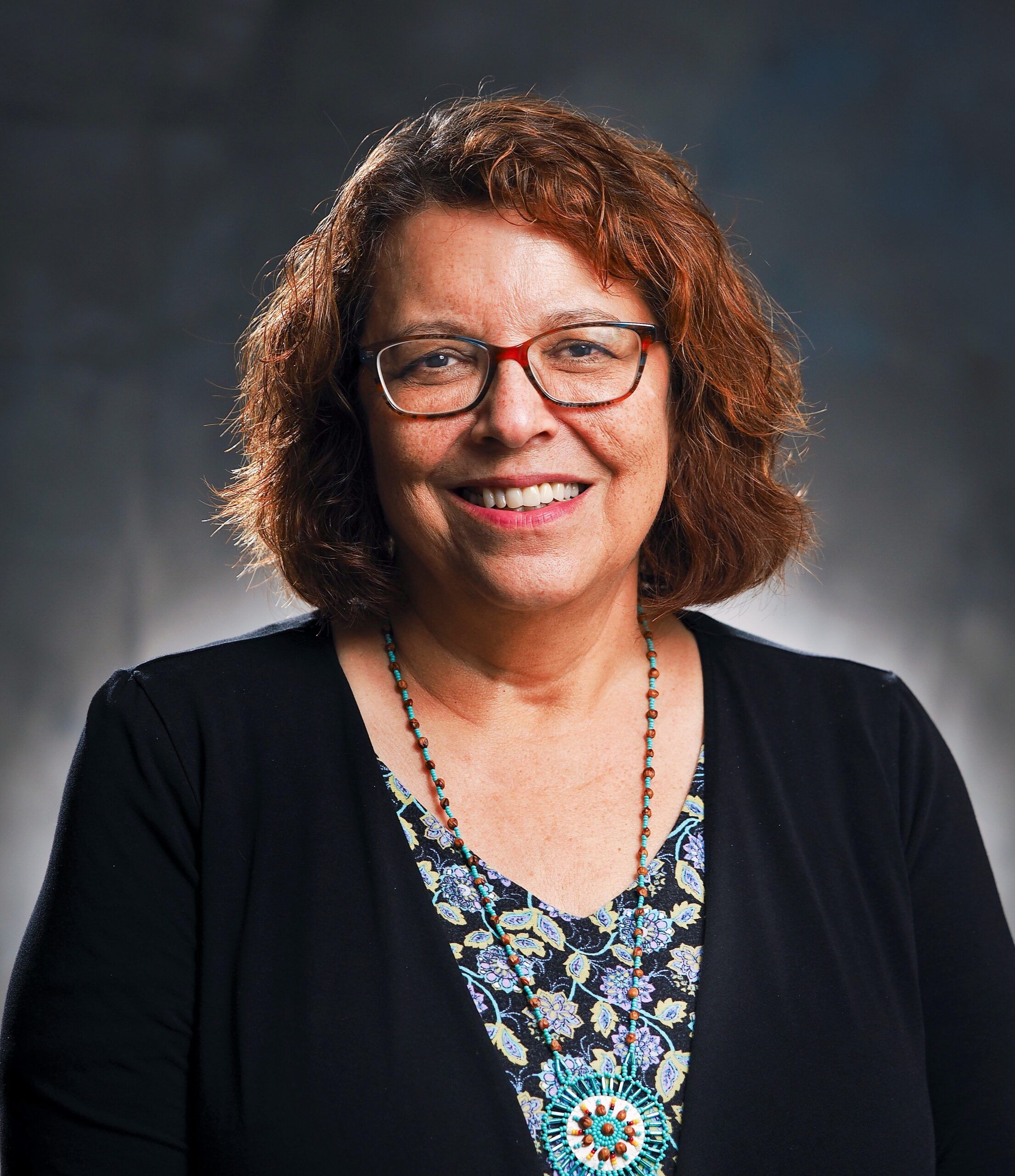Cheryl Crazy Bull
President and CEO
Cheryl Crazy Bull
President & CEO
American Indian College Fund
303-426-8900
Board of Trustees Liaison and Senior Manager – President’s Office
Carrie Basgall cbasgall@collegefund.org
Cheryl Crazy Bull, Wacinyanpi Win (They Depend on Her), Sicangu Lakota, is President and CEO of the American Indian College Fund, a role she has held since 2012. A lifelong educator and community activist, Cheryl is an advocate for self-determination focused on Native voice, philosophy, and traditions as the heart of the people’s work in building prosperity for current and future generations.
Cheryl’s experience includes serving Sinte Gleska University on her home reservation in various academic and administrative roles for 17 years, serving St. Francis Indian School as Chief Educational Officer; and serving as President of Northwest Indian College for ten years.
She is on the board of Native Ways Federation, a national association of Native non-profits and the Brookings Institution Board of Trustees.
Cheryl is a frequent public speaker, presenter, and writer about Indigenous education and issues with a focus on indigenous higher education equity and place-based education. She has an honorary cultural degree from Sinte Gleska University, an honorary doctorate from Seattle University, and other awards for her leadership as a Native educator and Native woman.
In 2015 she was named by Indian Country Today magazine as one of the 50 most influential people in Indian Country. In 2017 she was one of two American Indian women leaders honored by National Indian Women’s “Supporting Each Other” group. The Native American Finance Officers Association honored her with a Lifetime Achievement Award in October 2019. In March of 2020, CBS paid tribute to Crazy Bull, along with six other women, as an example of what it means to challenge and overcome stereotypes and biases in their industries as part of a series of CBS CARES public service announcements in primetime on the CBS Television Network. Working Mother Media named her their Legacy Awardee at their Multicultural Women’s Conference in July of 2020.
In 2021 the Mitchell Museum of the American Indian in Evanston, Illinois honored Crazy Bull with its Elizabeth Seabury Mitchell Awardee for exemplary service and philanthropic giving in promoting American Indian culture and Global MindED, a non-profit organization dedicated to closing the equity gap by creating a diverse talent pipeline through role models, mentors, and internships, named her as its 2021 Inclusive Leader Awardee.
For her work with student access to higher education and with tribal communities, Cheryl was recognized by the Bank of America as one of six Neighborhood Builders Social Equality Awardees in 2023.
From the President
Read important updates from the President’s blogs.
If You Want to Protect Children, You Cannot Defend Mascots
Numerous studies, including ones conducted by the federal government, illustrate the harm of racist mascots, especially on youth. Team names and logos should be chosen to instill pride without dehumanizing people, ensuring the safety and prosperity of our children and the future of our communities.
Featured Reports
Culturally Grounded Assessment Practices at Tribal Colleges and Universities
This report presents the findings from a landscape analysis looking at how TCUs have integrated culturally grounded practices in their assessment work. Relying on previously published literature, strategic documents shared on TCU websites, and first-hand interviews with TCU staff about their college’s current culturally grounded assessment practices (CAPs), a model identifying actions that TCUs take when engaging in CAPs work, along with the characteristics that accompany this work, was created. By sharing this report, we aim to highlight the potential for TCUs to leverage assessment to actualize and drive their cultural missions.
Report on Native Higher Education Success Strategies
The American Indian College Fund held a joint convening with the Brookings Institute and the Institute of Higher Education Policy to examine the status of Native higher education policy and create a proactive, strategic approach to increase policy engagement for Native students and their allies. This report highlights the findings and recommendations of the convening and lays the groundwork for further activities.

